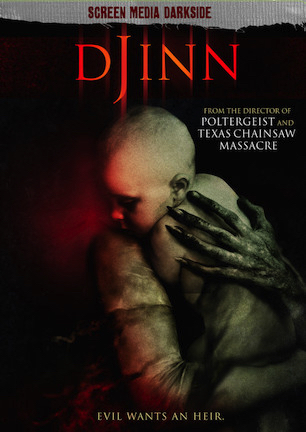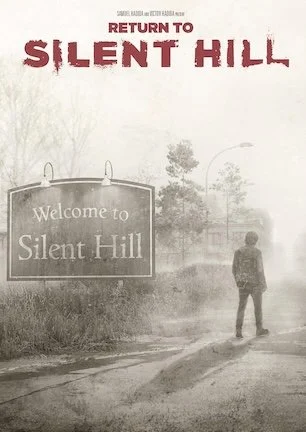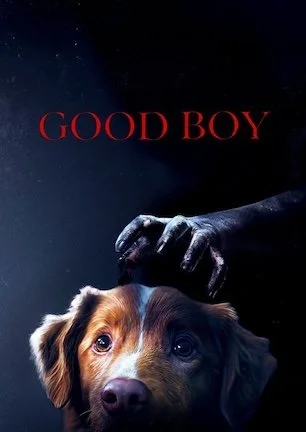Studio: Screen Media Darkside
Director: Tobe Hooper
Writer: David Tully
Producer: Tim Smythe, Daniela Tully
Stars: Razane Jammal, Khalid Laith, Aiysha Hart, Carol Abboud, Abdullah Al Junaibi, May El Calamawy, Malik McCall, Paul Luebke, Ahmad Abdulla, Saoud Al Kaabi
Review Score:
Summary:
A couple grieving over the death of their baby moves into a new building with a dark connection to Arabic legend.
Review:
Djinn are said to be supernatural spirits with abilities to shapeshift, turn invisible, and drive sinners to evil through the power of possession. Legend has it that a particularly evil and seductive djinn named Um Al Duwais once murdered a fisherman’s baby and replaced it with a half-human/half-djinn hybrid of her own. Upon discovering the abomination, the fisherman’s family summoned a priest, who locked the baby into its human form and spirited it away to parts unknown so it would never know its true heritage. Um Al Duwais now wanders between physical and spiritual planes in search of her missing boy.
In New York, Khalid and Salama are still reeling from the death of their own baby one year earlier. A suspicious counselor urges the couple to return to the United Arab Emirates, where they can be closer to family. Salama’s family anyway. Khalid is an orphan who never knew his parents. (There are absolutely no points for connecting that dot, by the way.)
Courtesy of Khalid’s employer, the couple is put up in a luxury high-rise built on the site of the rumored djinn village. Salama is first to realize something is not quite right when she hears echoes of a crying child and sees a black-robed apparition crawling on the ceiling while home alone. Circumstances grow increasingly bizarre when a mysterious neighbor offers an odd welcome and even Khalid begins wondering if this apparent hospitality might be hiding more sinister machinations.
“Djinn” plays like an inverse “Rosemary’s Baby” (review here). Salama is trapped in a foreboding building, surrounded by scheming smiles, and discouraged by one of those “it’s all in your head, honey” husbands appearing too often in supernatural suspense. The difference is that instead of preparing to celebrate a birth, Salama is recovering from a death and no longer wants anything to do with motherhood.
Aside from the attraction of having “Poltergeist” and “Texas Chain Saw Massacre” director Tobe Hooper at its helm, “Djinn” has two terrific hooks in a seldom-seen Middle Eastern setting and an equally exotic corresponding mythology. Curiously, “Djinn” is either unaware of its assets or disinterested in exploiting their uniqueness, choosing to mute both in favor of traditional tropes likely misperceived as having larger appeal.
When have you ever seen the United Arab Emirates portrayed onscreen in a horror film? After “Djinn,” you’ll have to keep looking as almost all of it takes place inside a building and what few exteriors do exist are shrouded in Silent Hill-level quantities of fog. Save an establishing shot or two, the entire movie may as well have been lensed on a soundstage in Cleveland. Perhaps it was for all anyone knows.
More disappointing is that an intriguing Arabian legend powers the plot, but the cultural flavor is of meaningless import to the story. Um Al Duwais is basically reduced to a standard vengeful ghost, complete with J-horror origins in manifestation and motivation.
Forensic analysts would have difficulty pinpointing Tobe Hooper’s fingerprints on the project. Absent his name in the credits, it is doubtful Hooper’s influence could even be recognized. One reason for that might be tied up in the four years of limbo where the movie resided between picture wrap in 2011 and U.S. distribution in 2015. Innumerable rumors exist regarding reasons for the delay, though a persistent one hints at reshoots and reedits. Personal speculation wonders if such tinkering was spurred by Emirati producers bristling at owning a movie perhaps too heavy with Arabic elements. How else to explain seemingly shoehorned shots like a bed filled with creepy dolls, flickering lights, or repeated use of a black hand suddenly slamming a foggy window if not for the notion of, “this is what passes as scare tactics for broad audiences, no?”
“Djinn” still conjures up creeps and chills, albeit in very plain fashion. It is impossible to be completely devoid of value with Hooper on hand, regardless of how much input he had on the final cut, or with “X-Files” alum Joel Ransom pulling D.P. duty on the visuals. Sleepwalking, both craftsmen can still put scares on a screen. “Djinn” just never lets itself develop into anything above an average paranormal haunting movie feeling more familiar than it should. Once Khalid and Salama’s plane lands, the entire film takes place over the course of only a few hours, which is insufficient time to dig into the mystery or for that mystery to burrow into anyone’s brain.
“Djinn” is an “almost there” movie. It possesses building blocks for original terror, though not the courage to double down on its DNA, opting instead to hedge bets with watered-down drama and routine frights. Acting is on point when scenes are spoken in Arabic, but deadened dialogue delivery in English chills chemistry between characters. Like its namesake, “Djinn” wanders between two worlds, committed to neither and unable to form any fuller than a shadow of what it once was, or what it could have been.
Review Score: 60






While the 110-minute runtime could use a trim to maintain more energy, “Redux Redux” is an easy recommend for anyone who enjoys low-key sci-fi.